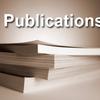Publications
Disability, Comedy, and the Multifaceted Discourse
Category: Book chapters
People:

Malli, M.A. (2024). Disability, Comedy, and the Multifaceted Discourse. In: Bennett, G., Goodall, E. (eds) The Palgrave Encyclopedia of Disability. Palgrave Macmillan, Cham. https://doi.org/10.1007/978-3-031-40858-8_206-1
The intersection of humor and disability within scholarly discourse remains a topic of ongoing debate, particularly concerning the perpetuation of harmful stereotypes through disability-related jokes. Scholars argue that such humor can downplay the seriousness of discrimination, fostering a culture where stigmatization of individuals with disabilities is deemed acceptable without repercussions. In this light, denigration of disabled individuals is often dismissed as playful and inconsequential. Conversely, when individuals with disabilities themselves initiate humor about disability, it is often hailed as empowering and liberating. Such humor is viewed as a potent tool for raising awareness, amplifying disabled voices, and serving as a form of resistance by educating others about alternative ways of navigating the world. Despite attempts to distinguish between “bad” and “good” humor, the complexity of humor resists such neat categorization. Is there truly a clear dichotomy between harmful and empowering humor in relation to disability? Can individuals with disabilities portrayed in jokes be exclusively viewed as either objects of ridicule or agents of empowerment, or is there a more nuanced and multifaceted perspective to consider? These questions underscore the intricate nature of the discourse surrounding disability and humor. This entry delves into the complex interplay between disability and humor throughout different historical eras, including the contemporary era marked by political correctness. It aims to dissect the multifaceted relationship between disability and humor, unravelling its diverse connotations and interpretations. By examining how humor differs from more serious forms of discourse, the entry endeavors to illuminate the dual nature of jokes about disability—they can both cause harm and aid in healing, perpetuate stigma while also fostering empowerment, sometimes concurrently.
- Population Horizons - Special Issues & Working Papers
- Population Horizons Archive (2015-2018)
- Blog
- IARU Newsletter
- Journal of Population Ageing
- Population Horizons Publications
- Books
- Book Chapters
- Journal Articles
- Research Reports & Policy Briefs
- Institute Working Papers
- Papers by members of the Institute's Regional Networks
- Visitors Papers
- Global Ageing Survey Research Reports
- Ageing Horizons
- Presentations & Posters
- Factsheets

